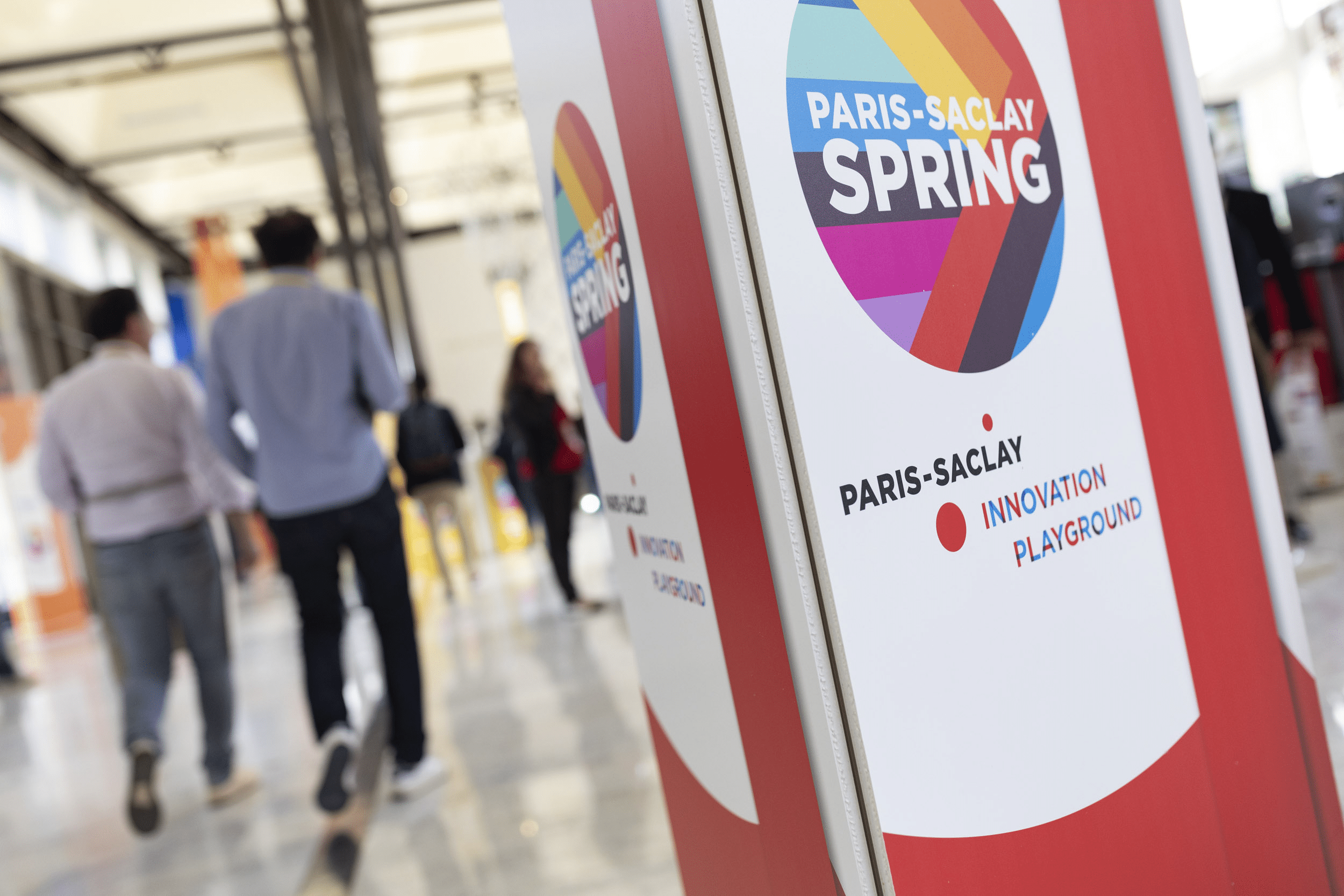Created four years ago, Paris Saclay Spring is a two-day event that showcases the best of the sectors operating on the campus 20 km southwest of Paris: foodtech, mobility, digital technologies, greentech, and health-biotech. Over 2,500 participants registered this year, following selection. They included startups, innovative SMEs, large corporations, intermediate-sized enterprises, investors, investment funds or innovation consulting firms in France or worldwide, as well as research laboratories and anyone involved in innovation (law firms, tax specialists, jurists, etc.), not to mention students. “The event lies at the intersection between several disciplines, since at Paris-Saclay we like to explore other specialist areas than our own,” says Jérémy Hervé, Director of Innovation at Paris-Saclay.
The audience had the opportunity to take part in 30 conferences and debates, BtoB to BtoFi meetings, and a pitch contest between 25 Spring 50 winners, and to visit six “innovation villages” featuring almost 100 exhibitors, including 50 startups as well as local Grandes Ecoles and businesses. Also included in the program were 14 innovation tours of R&D centers that are normally closed to the public (Servier, Air Liquide, Airbus, Danone, EDF Lab, VEDECOM, etc.…).
Paris Saclay is an academic community comprised of Paris-Saclay University and the Polytechnic Institute of Paris, which delivers world-class training and research. It is one of the top eight innovation hubs in the world and is ranked thirteenth in the Shanghai ranking. Every year, 100 to 150 startups are established at Paris Saclay, including 40% in the health-biotech sector. The campus on its own accounts for 15% of public- and private-sector research in France.
“Paris Saclay Spring is the only event of this magnitude to bring together two academic institutions and three urban communities, with an international audience. Here, everyone is on the same side. This local event is far more than just a conference. It connects investors with startups and spotlights innovation where it happens,” says Jérémy Hervé, Director of Innovation at Paris-Saclay.
This year, two conferences focused directly on health and the life sciences:
“Translational medicine: From science to patient” and “Future proteins and fermentation, microbiome, bioproduction: new opportunities for health nutrition”.
In addition, the Servier Paris-Saclay R&D Institute opened its doors on May 13 for guided tours as part of the Innovation Tour program. Next year, in 2023, the French pharmaceutical firm will move 1,500 of its employees, including 600 R&D engineers, to Paris Saclay to work on oncology, with an incubator able to accommodate a dozen or so startups.
As in the other four sectors featured at Paris Saclay Spring, ten startups won awards at this year’s event. Five of them pitched their solutions directly on the event’s central stage. These were EpiLab (first ever portable and rapid tuberculosis screening test), Innovhem (treatment solutions for sickle-cell anemia), Inspek (solution for reducing errors in chemical and biological processes), Kimialys (patented chemical treatment for sensors – nanoparticles, chips – used to develop diagnostic tests and in vitro assays), and MYPL (monitoring and decision-support software for oncologists).



